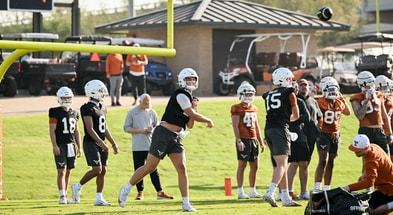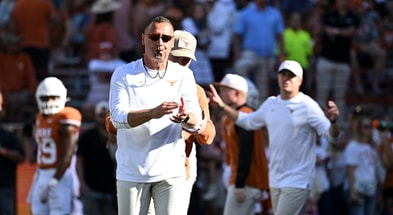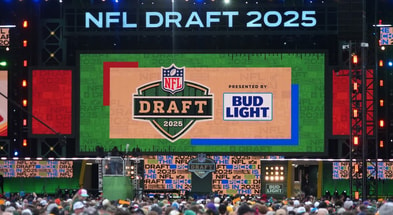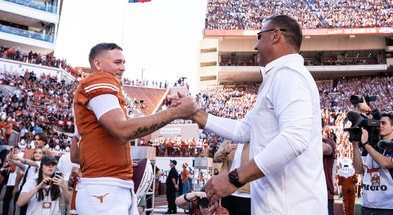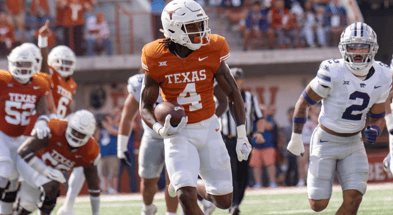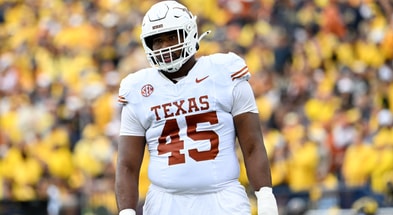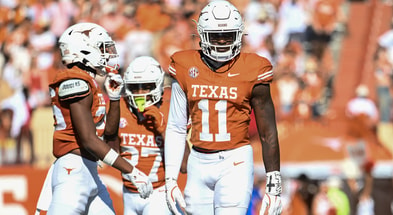NFL Ditches Chains for Chip Technology: Should College Follow Suit?

For the 2025 season, the NFL will leave the first-down chains behind, moving to a newer system that utilizes chips to track the football. The system will follow the football and alert the refs if a first down was achieved once the play is over.
[BOOKMARK: Check Inside Texas daily for FREE Texas Longhorns content]
While chains have been a staple of football since their introduction in the early 1900s, they have their limitations. Chains rely heavily on the spot marked by the referees, and an incorrect spot makes the chains significantly less useful. With the addition of replay review for the spot of the ball, this limitation has been lessened to some extent but not fully mitigated.
In recent memory, controversy arose over whether Buffalo Bills quarterback Josh Allen made the line to gain on a crucial fourth-down play. The referees marked him short, while various angles seen by fans seemed closer to the line to gain, if not past it. After a review, the call stood, and the Bills turned the ball over to the Chiefs.
With a tracker in the ball, replays for the spot of the ball are unnecessary, leading to less ambiguity and a fairer game.
Top 10
- 1New
Michigan football
Ex-coaches get show-causes
- 2Hot
Shedeur Sanders
On CFL negotiation list
- 3
Greg McElroy
Polarizing Top 10 QB ranking
- 4Trending
CFB Top 25
Post-spring rankings
- 5
Shaquille O'Neal
Takes CBB GM job
Get the On3 Top 10 to your inbox every morning
By clicking "Subscribe to Newsletter", I agree to On3's Privacy Notice, Terms, and use of my personal information described therein.
College football has implemented many NFL rules and technologies, such as the two-minute timeout at the end of each half or radios in the helmets of certain players. It’s not a huge stretch to say this could be the next one. College football has had instances where tracking would help place the football in the correct spot, such as in the 2013 Outback Bowl when Michigan was gifted a first down when the ball was clearly short.
But then you get into the issue of tradition. If there is just a tracker in the ball, there is no ambiguity or decision by the referees. A similar issue is seen in baseball, where many have argued for robotic umpires. While perfection is sought after, the human element is what makes sports exciting. Take, for example, that missed call in the Outback Bowl. On the play after the missed call, Jadeveon Clowney made a famous huge hit, knocking the ball free and sending the running back’s helmet flying. But it would have never happened without the human error of the referee.
[Join Inside Texas TODAY and get 7 days for just ONE DOLLAR!]
While an increase in the reliability of calls is a great thing, and in the long run will most likely be beneficial for the game, decreasing the human element has its drawbacks and may hurt the overall excitement and tension that the great game of college football contains.

